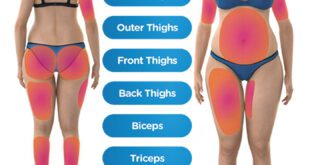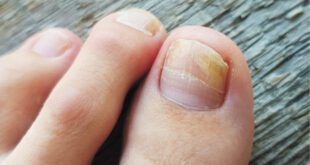Childhood obesity has become a global epidemic, with rates tripling since the 1970s. This alarming trend not only affects children’s immediate health and quality of life but also casts a long shadow into adulthood. The consequences of carrying excess weight during formative years extend far beyond physical appearance, impacting various aspects of adult life, from physical health to emotional well-being and socioeconomic status.
One of the most significant long-term effects of childhood obesity is the increased risk of chronic health conditions in adulthood. Children who are obese are more likely to become obese adults, and this prolonged state of excess weight can lead to a host of health problems. Type 2 diabetes, once considered an adult-onset disease, is now increasingly diagnosed in children and adolescents due to obesity. This early onset of diabetes can result in more severe complications in adulthood, including kidney disease, blindness, and cardiovascular problems.
Cardiovascular health is another major concern for adults who were obese as children. Studies have shown that childhood obesity is associated with a higher risk of hypertension, high cholesterol, and atherosclerosis in adulthood. These conditions significantly increase the likelihood of heart disease and stroke, which remain leading causes of death worldwide. The cumulative effect of carrying excess weight from childhood through adulthood places an enormous strain on the cardiovascular system, potentially leading to premature mortality.
Musculoskeletal issues are also more prevalent among adults who were obese as children. The excess weight puts undue stress on growing bones and joints, leading to problems such as osteoarthritis, chronic pain, and reduced mobility in adulthood. These issues can severely impact quality of life, limiting physical activity and potentially contributing to further weight gain, creating a vicious cycle.
Beyond physical health, the psychological impact of childhood obesity can persist well into adulthood. Children who are obese often face bullying, social isolation, and discrimination, which can lead to low self-esteem, depression, and anxiety. These emotional scars can carry over into adulthood, affecting mental health, relationships, and overall life satisfaction. Adults who were obese as children may struggle with body image issues, disordered eating patterns, and difficulty forming intimate relationships.
The socioeconomic consequences of childhood obesity in adulthood are often overlooked but are nonetheless significant. Studies have shown that individuals who were obese as children tend to achieve lower levels of education and earn less income as adults compared to their normal-weight peers. This disparity may be attributed to various factors, including health-related absenteeism, reduced productivity due to physical limitations, and societal biases against individuals with obesity.
Furthermore, the healthcare costs associated with treating obesity-related conditions can be substantial, placing a significant financial burden on individuals and healthcare systems. Adults who have been obese since childhood may face higher insurance premiums, more frequent medical visits, and greater out-of-pocket expenses for managing chronic conditions.
The reproductive health of adults who were obese as children can also be affected. Women who were obese in childhood are more likely to experience fertility issues, complications during pregnancy, and have a higher risk of gestational diabetes. Men may face reduced fertility and an increased risk of erectile dysfunction.
It’s important to note that the long-term effects of childhood obesity are not inevitable. Early intervention and lifestyle changes can significantly reduce the risk of these adverse outcomes. Encouraging healthy eating habits, regular physical activity, and positive body image from a young age can help prevent obesity and its associated complications.
Parents, educators, healthcare providers, and policymakers all have crucial roles to play in addressing childhood obesity. Implementing school-based programs that promote healthy eating and physical activity, improving access to nutritious foods in underserved communities, and educating families about the importance of a balanced diet and active lifestyle are all essential steps in combating this issue.
Additionally, creating supportive environments that reduce stigma and promote inclusivity for children of all body sizes is crucial. This approach can help mitigate the psychological impact of obesity and encourage healthier behaviors without damaging self-esteem.
In conclusion, the long-term effects of childhood obesity on adult health and well-being are far-reaching and complex. From increased risks of chronic diseases to psychological and socioeconomic challenges, the impact can be felt throughout one’s lifetime. However, with awareness, early intervention, and comprehensive approaches to prevention and treatment, it is possible to break the cycle of obesity and improve outcomes for future generations. By addressing childhood obesity, we invest not only in the health of our children but also in the well-being of the adults they will become.
Meet the Team
Elite Medical is comprised of a team who is dedicated to helping you on your journey to better health.
Christopher Bagley, APRN
Chris is lifelong a resident of Marion county. Chris graduated with a Bachelors degree from the University of Florida in Health Science Education with a specialization in Health Promotion. Chris worked as a firefighter, paramedic and registered nurse prior to becoming a nurse practitioner. Chris has worked primarily as an ER nurse practitioner but also has experience in primary care and long term care.
Chris has always had a passion for health and after committing himself to his health, he was inspired along with Eldon, to open Elite Medical, a comprehensive wellness practice that focuses on health and well-being to prevent sickness and chronic diseases.
Eldon Waters, MSN, APRN
Eldon is a Marine Corps veteran and attended the College of Central Florida, University of Virginia and completed a Bachelors of Science in Nursing from University of Central Florida. Eldon also completed his Masters of Science in Nursing from South University.
Eldon started as an EMT/Medic at the University of Virginia Medical Center, a level 1 trauma center and teaching facility. He went on to work at Advent Health Ocala as a tech then registered nurse. After gaining more experience, Eldon worked at Ocala Health in the ER as a Nurse Practitioner.
To find out more or to schedule your appointment, please contact Elite Medical today.
2801 SW College Road Unit 16
Ocala, FL 34474
352-441-9775
www.elitemedicalocala.com
 Central Florida Health and Wellness Magazine Health and Wellness Articles of the Villages
Central Florida Health and Wellness Magazine Health and Wellness Articles of the Villages



